School of Social Work News
Pages
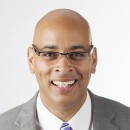 William Elliott III Quoted in Stateline on the Power of Children’s Savings Accounts
William Elliott III Quoted in Stateline on the Power of Children’s Savings AccountsProfessor William Elliott III told Stateline, an initiative of The Pew Charitable Trusts, that children’s savings accounts not only help families save for college, they can also instill them with hope and ambition. “Children’s savings accounts give people some grounds for believing they can change their future,” said Elliott.
- December 6, 2022
- Learn more »
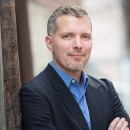 Luke Shaefer Quoted in a New York Times on the Effects of the Child Tax Credit
Luke Shaefer Quoted in a New York Times on the Effects of the Child Tax CreditProfessor Luke Shaefer spoke with the New York Times about the ongoing effort to bring back the Expanded Child Tax Credit. The pandemic-era program, which sent monthly checks to most U.S. families with children, helped cut child poverty nearly in half during the program’s six-month run. Shaefer’s research found that hardships fell as soon as the payments started and rose as soon as they stopped.
- November 29, 2022
- Learn more »
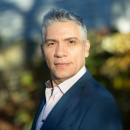 Rogério M. Pinto Named Fellow of the American Academy of Social Work and Social Welfare
Rogério M. Pinto Named Fellow of the American Academy of Social Work and Social WelfareProfessor Rogério M. Pinto was named a Fellow of the American Academy of Social Work and Social Welfare. The academy is an honorific society of distinguished scholars and practitioners dedicated to achieving excellence in the field of social work and social welfare through high-impact work that advances social good. Fellow status is among the highest professional accolades bestowed to social work scholars. The School of Social Work now has 13 academy members. Pinto is the Berit Ingersoll-Dayton Collegiate Professor of Social Work, a University Diversity Social Transformation Professor and Associate Dean for Research and Innovation in Social Work.
Pinto will be formally inducted in an online ceremony on January 14, 7-7:45 PM MST as part of the 2023 Society for Social Work and Research’s Annual Conference.
- November 29, 2022
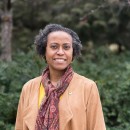 Trina Shanks Named to Framing and Design Committee of U-M’s Inclusive History Project
Trina Shanks Named to Framing and Design Committee of U-M’s Inclusive History ProjectProfessor Trina Shanks will serve on the Framing and Design Committee of U-M’s Inclusive History Project. This presidential initiative is designed to create a more accurate narrative about U-M’s history, with an initial focus on race and racism. “We cannot move forward as a university until we acknowledge those we’ve excluded in the past. We must have the courage to understand the lived experiences of all those in our community, past and present,” said U-M President Santa J. Ono.
- November 17, 2022
- Learn more »
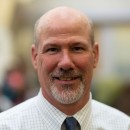 Michigan Medicine’s Social Justice Grand Rounds Renamed to Honor Daniel Fischer
Michigan Medicine’s Social Justice Grand Rounds Renamed to Honor Daniel FischerAssistant Dean of Field Education and Clinical Associate Professor Dan Fischer was honored on Tuesday by the Michigan Medicine Department of Social Work for his work as “a formidable leader, mentor and social work pioneer.” The Social Work Social Justice Ground Rounds will be renamed The Daniel J. Fischer Social Justice Grand Rounds.
“It is a tremendous honor to have my name associated with the Michigan Medicine Social Justice Grand Rounds series. It was a very proud yet humbling day for me,” said Fischer. “Knowing that this Grand Rounds series will continue to support the professional development and social justice lens of social work students, staff and other health sciences student learners at the University of Michigan is extremely rewarding. I suspect the full impact of this won’t really set in for a while, but in reality this has never been about me. Rather, the Social Justice Grand Rounds series has always been about helping providers self-reflect, consider and understand the impact their words, actions, policies and systems of care have on the patients and families they serve, and to strive to create health care environments that are accessible and meet the needs of everyone.”
Social Justice Grand Rounds is the only structured event at Michigan Medicine that formally unites graduate students in social work, field instructors, clinical social work staff, faculty and community leaders in a collaborative effort to address social injustice by featuring an actual case or topic that is illustrative of injustice in health care, as presented by a student in field at Michigan Medicine.
- November 17, 2022
 Laura Yakas Recipient of a 2022 James T. Neubacher Award Honorable Mention
Laura Yakas Recipient of a 2022 James T. Neubacher Award Honorable MentionLecturer Laura Yakas is the recipient of a 2022 James T. Neubacher Award Honorable Mention. The U-M Council for Disability Concerns established the James T. Neubacher Award in 1990 as a memorial to Jim Neubacher, a U-M alum who was a columnist for The Detroit Free Press and an advocate for equal rights and opportunities for people with disabilities. Through his advocacy, he sought to “raise a little consciousness” and “raise a little hell!” The award is presented annually in October during Disability Community Month.
"I'm especially moved by the validating feedback about my anti-saneism/disability justice work,” said Yakas. “Anti-saneism is my passion and purpose on this planet, and it has historically been marginalized within social work — so to be recognized and nominated explicitly for this by members of our SSW community feels amazing!"
- November 16, 2022
- Learn more »
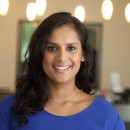 Ayesha Ghazi Edwin Wins Election for Ann Arbor City Council
Ayesha Ghazi Edwin Wins Election for Ann Arbor City CouncilCongratulations to ENGAGE Program Manager and Lecturer Ayesha Ghazi Edwin, MSW ‘10, who has been elected to Ann Arbor City Council Ward 3. “As an alum, staff member and adjunct faculty, I’m incredibly proud to bring social work values of equity and social justice to city governance!”
- November 9, 2022
- MSW Student Tian Yeung Writes in Michigan Daily that Voting is the Heart of Democracy
MSW student Tian Yeung’s op-ed in the Michigan Daily explains how critical voting is in supporting democracy. “It took the fall of a city for me to learn the significance of voting. That city was the one I was born in, the one I spent my childhood in and the one I loved: Hong Kong,” wrote Yeung. “If I could go back in time, I would ensure I voted at every opportunity.”
- November 7, 2022
- Learn more »
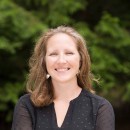 Terri Friedline Quoted in MarketWatch on the Financial Stress Facing Americans
Terri Friedline Quoted in MarketWatch on the Financial Stress Facing AmericansAssociate Professor Terri Friedline spoke with MarketWatch about the stress many Americans are facing in light of both rising costs and the threat of a predicted recession. “When things are not going well financially, it feels embarrassing and shameful,” she said. “Many, many people have financial difficulties, have struggled to pay their bills, or have over-drafted their accounts.”
- November 1, 2022
- Learn more »
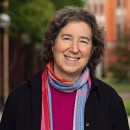 Karla Goldman Quoted in Inside Higher Ed on the History of Elite Universities Limiting Jewish Student Enrollment
Karla Goldman Quoted in Inside Higher Ed on the History of Elite Universities Limiting Jewish Student EnrollmentProfessor Karla Goldman spoke with Inside Higher Ed about the report released by Stanford University uncovering its history of limiting Jewish student enrollments. The report comes at a time when colleges and universities across the country are excavating their pasts and working to publicly acknowledge and correct for their roles in historical wrongs. “This was happening everywhere, so it’s interesting that Stanford took this piece as seriously as they have,” Goldman said. “It’s to their credit. But does it mean there should be a wave of these things everywhere? Truly, almost every school in the Northeast should be apologizing.”
- October 31, 2022
- Learn more »